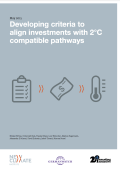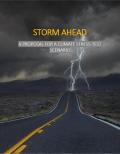
The German government, through the German Federal Environment Agency, commissioned a consortium consisting of NewClimate Institute, Germanwatch, and the 2° Investing Initiative to explore criteria to measure the alignment of investment and financing with the 2°C limit.
This report defines prioritisation of green interventions in the building sector supply chain, and maps the interdependencies upstream and downstream of the construction site, allowing the various stakeholders to gain insight into their role and on how they impact on the overall system and wider socioeconomic goals.

The COVID-19 crisis has caused economic shockwaves around the globe, highlighting the interconnectedness of countries through global value chains and the importance of a resilient trading system. Appropriate trade policies and regulations can help accelerate the post-crisis recovery. This policy brief focuses on Aid for Trade as a means to promote green trade and build climate resilience.

This report provides guidelines to build an adverse climate scenario that can be used by financial supervisors as inputs into either traditional or climate-specific stress-tests of regulated entities. The report has been designed to cover the key metrics and indicators found in traditional stress-tests, integrating both risks associated with the transition to a low-carbon economy as well as physical risks in a +4°C / +6°C world. The report provides both insights into key indicators needed in the context of climate stress-tests or scenario analysis, the values they would take in the context of transition risk and physical risk analysis based on the existing literature, options for modelling these indicators moving forward, and example applications developed by the 2° Investing Initiative.
This report examines the potential for increased coherence in approaches to climate change adaptation and disaster risk reduction across levels of government and sectors.
